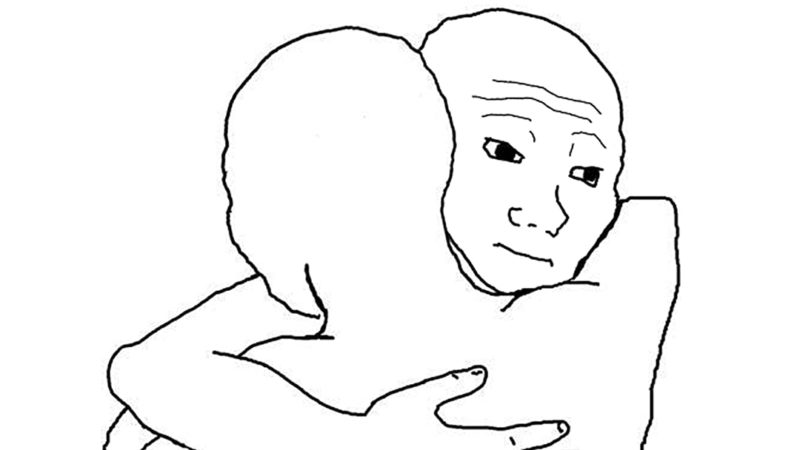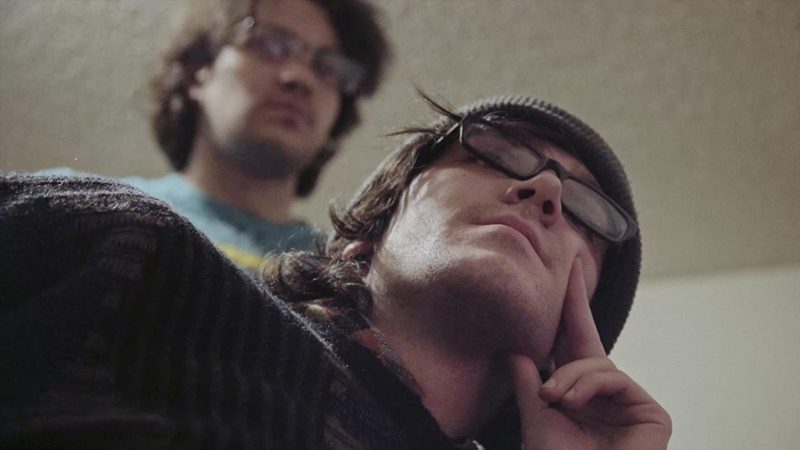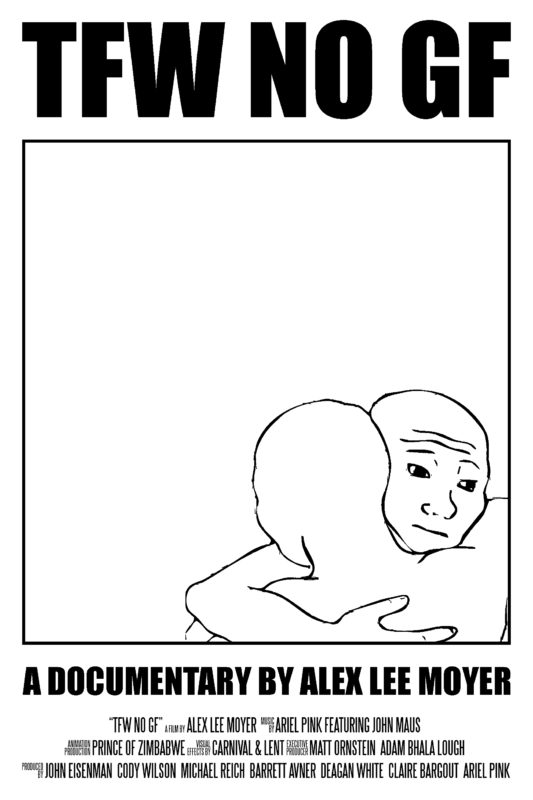TFW No GF is part of SXSW Film Festival’s 2020 movie offerings available for a limited time on Amazon Prime Video

In M. Night Shyamalan’s 2002 film Signs, there’s a scene that has stuck with me pretty much since I saw the film. To set the stage, the Hess family’s cornfield has recently been subjected to unexplainable crop circles. The Hess son, Morgan (Rory Culkin,) believes it to be the work of aliens while his father, Graham (Mel Gibson), and his uncle, Merrill (Joaquin Phoenix), are convinced there’s another explanation. Eventually, Merrill lays out what he thinks is the cause.
He tells Morgan, “This crop stuff is about a bunch of nerds who’ve never had a girlfriend in their lives. They’re like 30, they work up little codes together and analyze Greek mythology; they make up secret societies where other guys who’ve never had girlfriends can join in. They do stupid crap like this to feel special. It’s a scam. Nerds were doing it 25 years ago and new nerds are doing it again.”
Morgan’s younger sister Bo (Dakota Fanning) then asks the question, “Why can’t they get girlfriends?” And boy, oh boy, wouldn’t you know it? SXSW’s TFW No GF has the answer I’ve been looking for for 18 years!
TFW No GF is a documentary film from Alex Lee Moyer looks into the lives of young disaffected men in America that find themselves at odds with their communities but bound to each other through one common factor: they don’t have girlfriends.
 Of course, that’s a bit of a loose thread that ties these young 20-something boys together and there’s more at play in this documentary, but TFW No GF is so dull and meandering that it finds itself without much of a voice. Instead of making some kind of statement one way or the other about the subjects of the film, Moyer rather opts to just show us how a bunch of incel douchecanoes in their natural dirty apartment habitats of online vitriol, spewing hate at women, themselves, or anyone else who will listen to their “thoughts” on Twitter.
Of course, that’s a bit of a loose thread that ties these young 20-something boys together and there’s more at play in this documentary, but TFW No GF is so dull and meandering that it finds itself without much of a voice. Instead of making some kind of statement one way or the other about the subjects of the film, Moyer rather opts to just show us how a bunch of incel douchecanoes in their natural dirty apartment habitats of online vitriol, spewing hate at women, themselves, or anyone else who will listen to their “thoughts” on Twitter.
The young men at the center of TFW No GF find themselves alone in their day-to-day lives. Some of them still live at home with their parents, some are living with either similar-minded roommates or siblings. Yet all of them connect with one another via websites like 4Chan, Reddit, and Twitter. These websites create a platform for these boys to project their anger at the world in posts but also open themselves up to be vulnerable about their loneliness. The problem is that that vulnerability is often ridiculed by others feeling the same way–projecting their feelings of animosity and anger outwards towards others feeling the same way.
As these young men find themselves more and more in these circles of like-minded individuals, the ideas portrayed in those circles of hatred, self-harm, and misogyny get louder and louder as the echo chamber mentality makes those ideas take root. Tweets degrading women and minorities, dollar store philosophical musings about loneliness and hatred, and jokes about suicide and murder all are the product of these thought trains born in the far reaches of the internet, boiling over into real life. These would-be sympathetic characters actually prove themselves to be monsters hardly deserving of sympathy because of the way they treat and talk about others.
Moyer’s major blunder here is the lack of focus and guidance throughout the doc. Tweets from these boys’ Twitter accounts are visually laid over moments of banality rather than being contextualized within the very actions or comments made by those same boys in the film. Instead of leading us to any kind of thesis, Moyer just lets these boys do whatever they want, waxing poetic with postmodernist bullcrap, filming as they go. Racism isn’t challenged. Sexism isn’t challenged. The talking head moments of the documentary don’t seem to be a result of any questioning of morals but rather a response to open-ended softball questions about how “the world is against us, man”.
 For example, there is a point in the film where one of the boys makes a pretty profound statement on Internet culture. He talks about how the “real world” and the “internet world” used to be two separate realms, but now they are inseparably connected and indiscernible. Yet, five minutes later that same boy talks about how jokes about wanting to smash his car into a crowd of people or wanting to “punch a woman so hard that she buckles” are just that–jokes. Rather than challenging that conflicting statement, Moyer allows the thought to hang there.
For example, there is a point in the film where one of the boys makes a pretty profound statement on Internet culture. He talks about how the “real world” and the “internet world” used to be two separate realms, but now they are inseparably connected and indiscernible. Yet, five minutes later that same boy talks about how jokes about wanting to smash his car into a crowd of people or wanting to “punch a woman so hard that she buckles” are just that–jokes. Rather than challenging that conflicting statement, Moyer allows the thought to hang there.
The film’s subject is unsettling. The way that these boys talk about life and the people around them might leave one wondering what could potentially happen to them someday. One even walks right up to the line of making excuses for those “so alienated that they feel like their only choice is to lash out in whatever way they can.”
To its credit, TFW No GF makes clear the vicious cycle of misogyny: boy gets mad because he can’t find love, boy gets mad and demonizes women online, “online persona” comments weave their way into the real-world psyche of these boys, making them less and less attractive to actual female attention. And around and around they go not realizing that they are the perpetrators of their own loneliness.
There’s a responsible way to direct this feature. Documentary filmmaking doesn’t require an approach so hands-off that the subject doesn’t leave unchanged in any way. Moyer comes into these boys’ lives, records their pent up aggression at the world, and then leaves them to their own devices with seemingly no interest in helping them grow, and with no conclusions to be made, not only do the subjects not change, but neither does the audience. The end of the film leaves you with a shrug and an “ok”, but there’s little to take away and grow from this.
But above all else, the problem with TFW No GF is the same reason why these losers are going to be alone for a very, very long time–nobody likes a group of postmodern, “ironic” nihilists who think being a douche to women online is a personality trait. Because they’re just jerks, and nobody likes a jerk.
RATING: D





